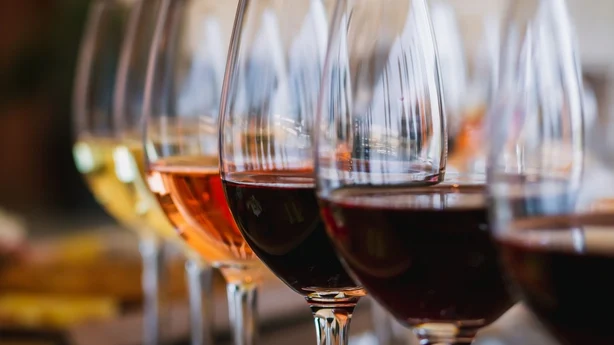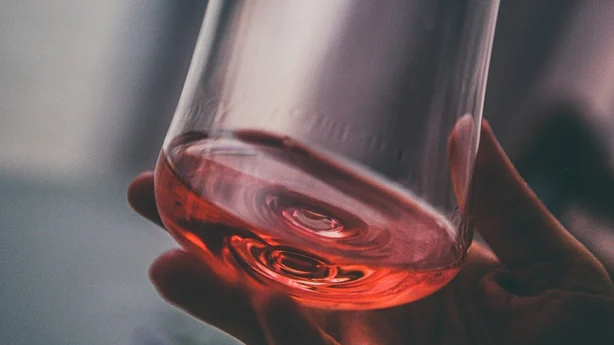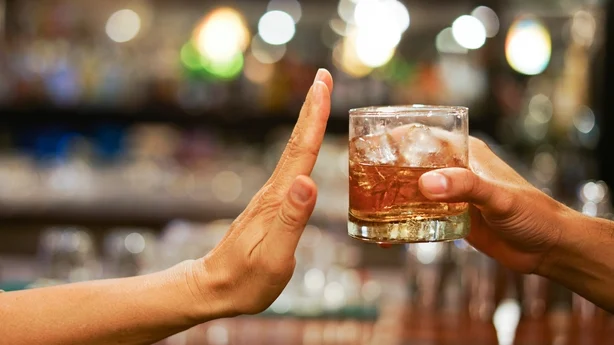Liver specialist Professor John Ryan and Paul Moynihan, publican and former president of the Vintners Federation of Ireland (VFI), talk to Claire Byrne about changes in our drinking habits. Listen back above.
Irish people are drinking less overall, but the majority of people who drink still do so in a hazardous way.
Speaking on Today with Claire Byrne, Consultant Hepatologist Professor John Ryan says in spite of an overall decline in alcohol consumption, he often sees patients in their 20s and 30s with end-stage liver disease.
Claire also spoke to Wicklow publican Paul Moynihan about running a local pub and how people are no longer embarrassed to order non-alcoholic drinks at the bar.

Alcohol consumption in Ireland is down, according to new research by the Health Research Board. But drilling into the figures, liver specialist Professor John Ryan says that the heavy drinkers are still out there. He says the average is brought down, because there are more non-drinkers:
"There’s been an increase in the number of people who abstain. That’s becoming more common in younger people who seem to be drinking less."
Ryan says he welcomes any reduction in alcohol consumption, however small. But even if the numbers of non-drinkers has gone up; of those who do drink, many still do it in a way that damages their health:
"The proportion of people still drinking harmfully is still high."
Drinking habits in Ireland changed during COVID, with more people drinking at home, and there is some evidence that home drinking is heavier than it would have been in a pub setting, where the bigger social setting can put a cap on the amount consumed.
Claire speaks to former VFI president Paul Moynihan later in the interview about the benefits of pubs in combatting isolation and in terms of moderating consumption, when compared to drinking alone.
Ryan says he’s conflicted by the decline in pub culture. Any reduction in drink-related activity is good, he says, but there's a real danger that it’s leading to more harmful drinking at home.

When it comes to the ill-effects of alcohol on the nation's health, the news is not good. Ryan says the overall trend in liver disease is upwards:
"10 percent of the healthcare budget is spent on alcohol-related harm. Liver disease has increased dramatically over the last 40 years and mortality from liver disease has increased alongside that, so anything that involves reducing the harm related to alcohol is something that I would be advocating for."
We can’t be complacent about the downward trend in alcohol consumption, as it’s coming off a high baseline figure, Ryan says. There has always been a huge problem, and a slight decrease in drinking still leaves us with a lot of harmful drinking. Ryan sees the effects of this in his clinic:
"We’re still seeing people in 20s and 30s in the hospital, regularly on a weekly basis with end-stage liver disease, which is a major killer."
Even though he frequently sees young patients with potentially fatal liver disease, Ryan says that, at times, it’s still hard to believe it’s happening:
"Often you have to look at the date of birth to really believe that someone so young, you know, someone born after 2000 could be in hospital with liver disease purely from alcohol. You know, very sick with jaundice, liver failure. Ireland has a big problem."

Claire asks Ryan about the rise in non-drinkers, and he agrees that it's good news. However, he says that drinking alcohol is never entirely safe. In fact, there is no real "safe limit" in spite of what guidelines may say:
"It is welcome in that sense that no amount of alcohol is safe. There is no safe limit – we report safe limits, we tell people what they are, but really, in reality there is no real safe limit. So from that point of view, abstinence is good."
The figures show that people are giving up drinking in the younger age groups, and Ryan puts this down to a greater interest in health and fitness.
The problem remains, he says, that the majority of those who drink are drinking in a way that can lead to severe health problems:
"The other 70% odd who are consuming, over half of them consume alcohol in a hazardous way and that has major health implications. So that’s the kind of other side. It is very welcome news, it’s good to see, but there’s still that proportion of people who really consume a lot on a regular basis in a harmful way."
Claire also spoke to Paul Moynihan, owner of Moynihan’s bar in Donard, Co. Wicklow about the growing popularity of '00’ drinks in pubs, the reduced stigma around choosing alcohol-free beers and the benefits of consuming alcohol in a social environment, as opposed to drinking at home – that’s all in the full segment which you can listen back to above.
If you’ve been affected by anything that came up in this piece and would like to reach out to someone, information on helplines is here.
Resources on liver health mentioned by Prof. Ryan and information on World Liver Day is here.
* Always drink responsibly
Disclaimer: The copyright of this article belongs to the original author. Reposting this article is solely for the purpose of information dissemination and does not constitute any investment advice. If there is any infringement, please contact us immediately. We will make corrections or deletions as necessary. Thank you.






